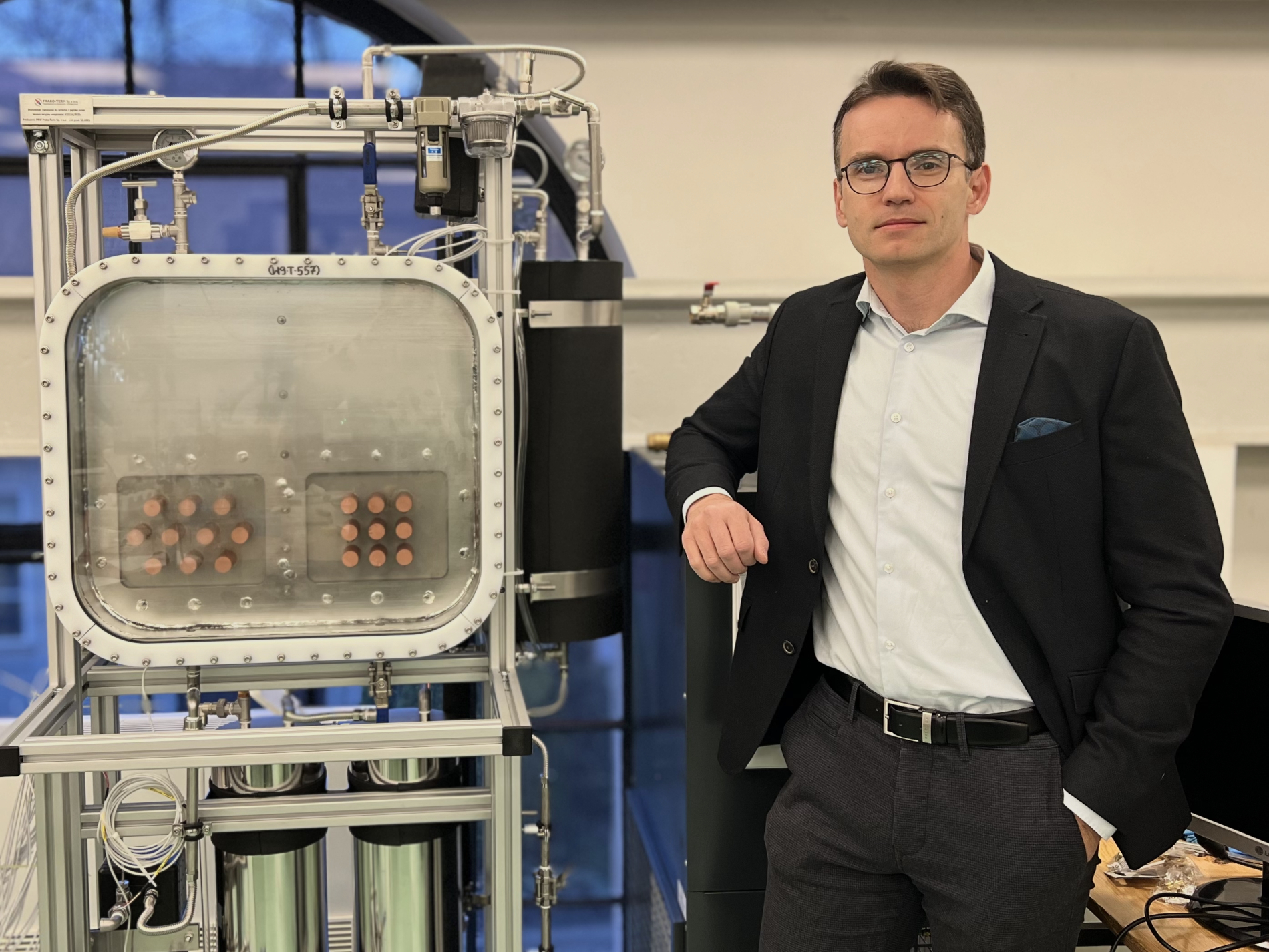YOUR BROWSER IS OUT-OF-DATE.
We have detected that you are using an outdated browser. Our service may not work properly for you. We recommend upgrading or switching to another browser.
Date: 30.01.2024
Bartosz Zajaczkowski, PhD DSc, Assoc. Prof. from the Department of Thermal Sciences was awarded with the PRELUDIUM BIS 5 grant in the competition of the National Science Center. The project entitled "Improvement of heat transfer parameters during boiling with an in-situ nanoparticle coating" received PLN 586,700 of funding. 88 applications were submitted in the ST panel, 17 were funded. The success rate was 18% (including all panels). The project will take 48 months to complete.

Today's social and technological developments are driving global energy demand at an unprecedented rate. Therefore, with the current drastic shortage or increase in the price of fossil primary energy sources, the need to use previously unavailable regenerative thermal energy reservoirs is growing. Systems that allow for the recovery of thermal energy are required even at low temperature differences or low temperature levels. The project is addressing this topic.
The scientific goal is to increase the thermal performance of phase-change probes by in situ coating the evaporator surface. Earlier research at Wroclaw Tech delivered evidence that boiling suspensions containing particles between 10 and 100 nm in size alter the evaporator surfaces and allow the achievement of this goal. The results obtained show changes in wettability and a significant reduction in superheat, which open the possibility of pool-boiling heat transfer with high efficiency under otherwise impossible conditions. However, the underlying physics of boiling on porous surfaces is complex and complicated. More research is necessary, and these open questions lead to Ph.D. worthy scientific research tasks that form the basis of this proposal.

The earlier results showed that, instead of improving the thermodynamic properties of the fluid, the nanoparticles rather deposit on the boiling surface and affect its properties. The profound finding was that with some nanomaterials the effect appears to be permanent, which fact sparked our interest in the creation of a new in situ coating method, which is addressed in this proposal.The experiments will be conducted with an especially designed thermosyphon. In previous research, we have studied the boiling process in a similar device. We have developed maps that can now be used to navigate between stable and pseudo-stable boiling regimes. Now, the plan is to use this information to control the occurring process and potentially obtain the highest possible quality of the layer. Before and after boiling, each suspension will be characterized to evaluate differences in properties and nanoparticle content. The device itself will be dismantled, and its internal surfaces will be carefully characterized at different scales (from standard microscope observation, through confocal microscope scanning, to SEM photography) to check the status of the evaporator surface and the character of nanoparticle layer. Additionally, boiling of nanoparticle suspensions will be followed by boiling a pure base liquid, to check if (and to what degree) heat transfer enhancement caused by nanoparticle agglomeration prevails.
The first series of experiments will allow one to form a list of control and noise factors and to design the experimental plan. The second series of experiments, in combination with statistical analysis (the Taguchi method) will produce the quantitative and qualitative understanding of the new in situ coating method.